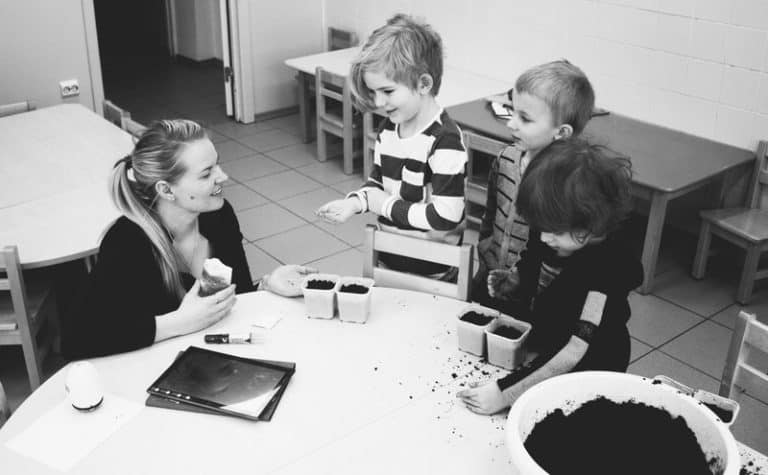How to Build Emotional Resilience in Children
Children should be protected, loved, and nurtured. They should also be resilient. Resilient enough to stand, bounce back, or pick themselves up when the occasion calls for it. Because one day, children will leave their parent’s side and be exposed to the unknown world. A world that is sometimes competitive, frightening, unfair, and even cruel. By building resilience in children, we can empower them mentally and emotionally for a lifetime.
“It’s not what you do for your children, but what you have taught them to do for themselves, that will make them successful human beings.” Ann Landers
Science shows that kids are not born with a fixed amount of resilience, and it can be developed with the right practice.
Why Building Resilience in Children Matters?
Every child learns that life isn’t complete without its hard punches, swift kicks, and knockouts.
Children become resilient by facing failure head-on, not by avoiding it. By developing resilience, children can learn how to confront challenges differently.
They will learn how to face stress because a sense of courage and confidence arises within them. The Thai Cave rescue mission of the 12 boys and their soccer coach shows a picture of utmost resilience.
Strategies for Building Resilience in Children
Create a Safe, Stable, and Nurturing Home Environment for Your Child
A safe, stable, and nurturing home environment is key. The single most important factor in developing resilience in children is at least one stable and nurturing relationship with a supportive parent, caregiver, or any other adult.
These relationships build key capacities— such as the ability to plan, monitor, and regulate behavior. Such capacity enables children to respond adaptively to adversity and thrive. Among the trapped 13 Thai boys group, 12 boys were young aged between 12 to 14, and their coach was aged 25. Having a supportive, protective figure helped the boys offset the fear and unpredictability, says Dr. Steven Marans, director of the Childhood Violent Trauma Center at Yale School of Medicine.
Express Confidence in Your Child’s Abilities
Let your child know you trust them and their ability to cope. It will develop their confidence and mental toughness. Over time, they will start acquiring the necessary skills to deal with challenges and become more effective problem-solvers.
Confidence and mental toughness were the two most important things the trapped boys had. Consider that they survived with little or no food and light for nine days. Yet when they were found, they were calm and in good health.
Don’t Always Rush in to Accommodate Every Need
Parents are often faced with a difficult decision between their natural instinct to provide for their children and spoiling them.
Don’t feel the urge to provide every need your child expresses. If your decisions are bringing your child closer to emotional stability and positive changes, you are not spoiling them. You are giving them the best possible shot at living their life.
Allow Your Children to Make Mistakes
If you want to develop resilience in children, you have to allow them to make mistakes. As parents, it’s tempting to try and protect them from every failure and setback. But you should do it to a certain extent.
Letting your child make mistakes will strengthen their resolve. You want to instill the sense that whatever life throws at them, they can handle it. Allowing them to make mistakes is the right step forward.
Help Them Develop Compassion and Gratitude
Developing compassion and gratitude is important in a world of inequality, increasing prejudice, and the coarsening of cultural values. Have them write their own thank-you cards to their teachers and coaches. Teach them to think about the feelings of other people.
Developing compassion and gratitude will also help them in real-life scenarios. The trapped Thai soccer boys were a cohesive team and already skilled in relying on each other. It greatly improved their chance of surviving the ordeal.
Encourage Your Kids to Problem Solve
However, there are times when parents need to step back and let them handle the situation on their own. Encourage them to persevere through things they are finding difficult. Only then can they form habits that will help them handle future adversity.
For example, when something goes wrong with a friendship or an issue with schoolwork. Ask them how they think they could improve the situation instead of asking why and jumping in with the solution.
Help Them Manage Their Feelings
Help children understand what feelings they’re going through and how they can manage their feelings. Encourage resilience by helping them think clearly enough to express themselves.
Let Them Connect with Friends and the Community
To some extent, the child needs to have the basic social building blocks to become emotionally resilient. Encourage your child to connect with others and confide in trusted people like teachers, counselors, and friends.
Being involved with the community will develop their social awareness skills. During the helpless and isolated situation, the trapped Thai soccer kids already knew one another. It helped them to work together to cope with the challenges.
Read also: How to Raise Curious Children in the Digital Age
To Build Emotional Resilience in Children, Be a Resilient Parent
Finally, when it comes to building resilience in children, be a role model. Children are very good at mimicking what they see in their parent’s lives, so that’s definitely something to keep in mind. Act with compassion, kindness, thoughtfulness, and gentleness; your children will be more likely to follow the example.
Raising a resilient child requires a proactive approach to parenting and a willingness of parents to give up bad parenting habits. Pay attention to equipping them with positive protective factors. And look for resources to build emotional resilience in children.







